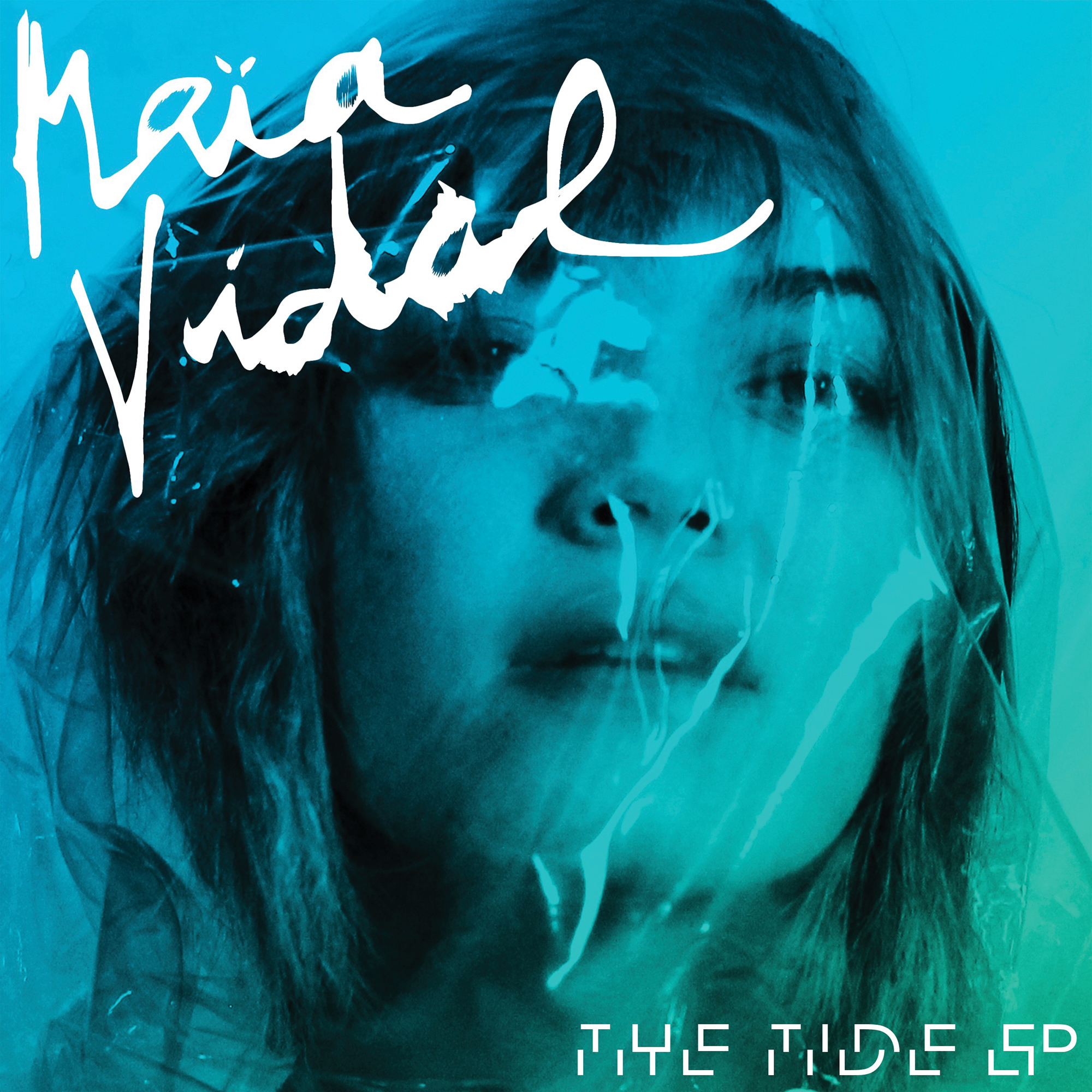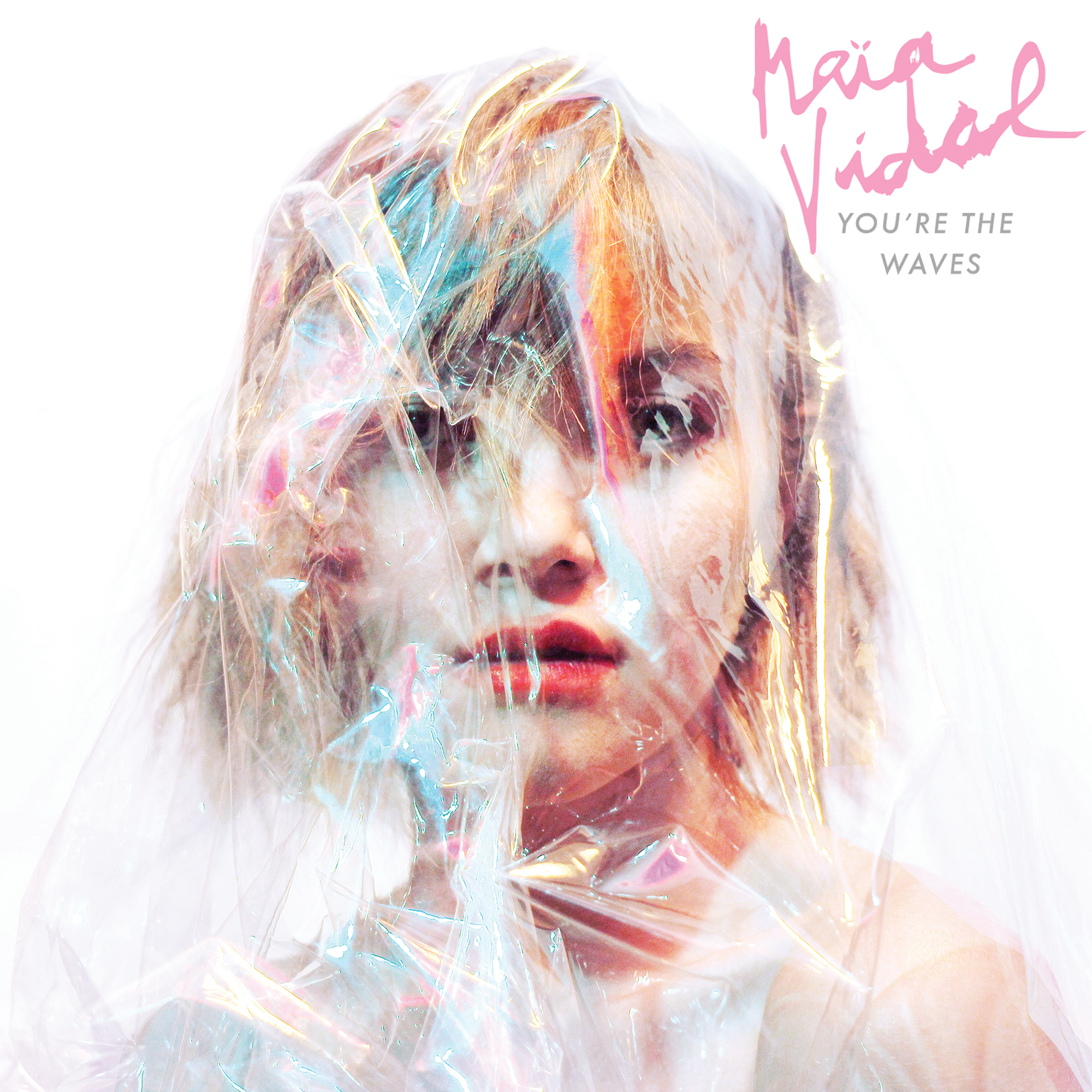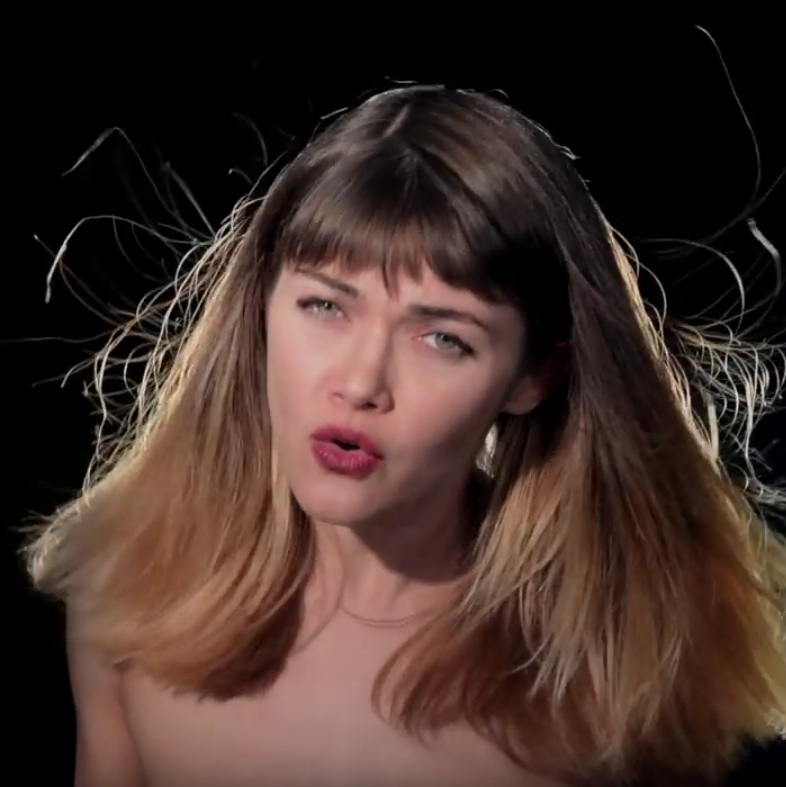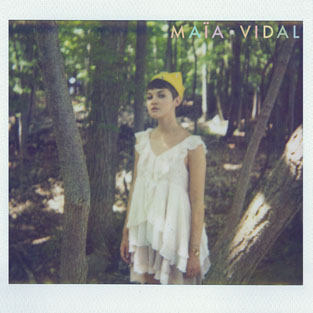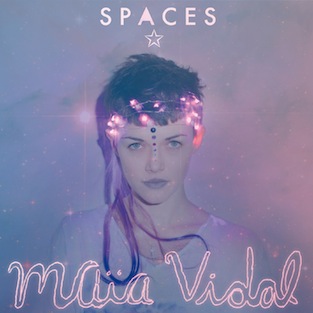
2012 has been a wild year for Maïa Vidal: following the great reception of her debut album God Is My Bike (which came out at the tail end of 2011), she played scores of shows around Europe, as well as in Japan, the US, Argentina and Brazil. The album was nominated for Pan-European Indie Album of the year, her video for Follow Me competed against Lana del Rey's and Justice's for Best Pop Video at the UK Music Video Awards, and everyone seems to have fallen in love with her "quirky pop-folk songs, her "charming lullabies and waltzes" and "romantic and dreamy" tunes (to quote some of the reviews).
Attentive listeners were well aware that, behind the apparently light and sweet surface, some deeper, darker, richer elements were bubbling, that Maïa's music would soon outgrow any previous cliché appraisals, and that we hadn't begun to glimpse the extent of the lyrical & compositional strengths which were soon to unfold (after all, the young American-French artist was only 22 when she recorded that first album).
So here we are, a mere year later, and Maïa Vidal is presenting us with Spaces ✩, an entrancing new album, full of soaring melodies, arresting lyrics, innovative compositions & daring production.
Spaces ✩ is all about shifts and changes, about moving back & forth in the spaces between the intimate and the global, between childhood, womanhood & old age. About sliding quicksilver-like between personalities, characters and vantage points. It's generally about movement (which is unsurprising, in a literal way, when you think that the initial ideas for most of the songs were written while physically in motion, on trains, planes, bikes, while walking… and often jotted down by Maïa on her phone or laptop). "All the forward momentum of a year of travel and learning how to be a grown up while on the road created this fertile environment for stretching my songwriting wings a bit" says Maïa, who stresses that some of the writing was "almost painful yet cathartic: I found things out about myself instead of just explaining what I already knew".
The lyrical content abounds with paradoxes, with contrasted viewpoints & feelings. Next to texts infused with Maïa's sense of childlike wonderment or nostalgia (as in The Big Shift, Spaces & Wander), other songs see Maïa playfully adopting the viewpoint of a man (she imagines herself as the male suitor of Dostoevsky heroine Katerina Ivanovna) or an animal (Animals)… making up a couple who can't sleep together lest they infect each other's dreams (Francis & Fleur)… waging a war against her own rebellious, dysfunctional body (Disaster Body)… turning into someone who is at the same time very young and very old (Everything Was Beautiful, which starts with a recycled Woody Allen quote and ends with a reference to Kurt Vonnegut)… plumbing the depths of a narrator's inner conflicts between her personal love life and the alarming state of the world (Bright, and Snow in the Summer, which Maïa describes as "apocalyptic takes on Stormy Weather")… and taking on a resolutely optimistic, active stance, as in The Big Shift: "you'd be blind to not see that everything is shifting around us and that it's better to grab it by the horns and really live it than be trampled. It's feeling your whole being vibrating with all the intensity of your era. being part of something bigger".
The recording of the album took place over the course of seven months, during gaps in the touring schedule, and involved a lot of fun and experimentation in the studio. Everything was played and recorded by Maïa and Giuliano Cobelli (who co-produced the album). The outcome of this freewheeling, open-minded production process often seems to magically mirror the lyrics, as Maia and Giuliano have intuitively created a sonic refraction of the songs' themes. Alongside crystal-clear, lovely pieces such as Wander and Comets+Stars, one delights in the fractured narrative structure of Everything Was Beautiful, and gets happily misled by the deceptive harmonies in Disaster Body. Very simple verse/chorus songs are turned into incandescent mini-symphonic excursions. Strange things seem to be happening below the surface of the music, somewhat like solar flares, which are barely visible yet affect our perceptions.
Maïa and Giuliano have used some creative recording techniques and processing (we'd like to imagine them overdubbing tons of autoharp tracks, each recorded with different effects… the autoharp, by the way, was used as a kind of jack of all trades, and comes in all shapes and unrecognizable colours, alternatively fulfilling the function of a distortion guitar, a cloud of ambient static or… a harp). Gone is the previously-omnipresent accordion: Maïa performs on keyboards, violin, xylophone, autoharp, clarinet, theremin, trumpet, even double bass, and learned along the way to play the piano and the banjo, while Giuliano played drums, percussion, trumpet, and sang backing vocals.
The album was recorded in Barcelona, and mixed in Paris by Yann Arnaud (Air, Phoenix, Cibelle, Stephan Eicher), except for 2 tracks which were mixed in Montreal by Howard Bilerman (whose name is associated with Arcade Fire and Godspeed You! Black Emperor).
But let's now take a step back: the instrumental diversity, the inventive production and the rich lyrical content are all harnessed to create an enchanting collection of highly enjoyable and touching songs, which run a whole gamut of emotions and colours. And Maïa's ever-bewitching voice is obviously at the center of it all.
P.S. Believing that the choice of first names predetermins someone's destiny is is almost as quaint as believing in astrology (many would dispute the latter)… but one can't help noticing that, in ancient Roman religion, the goddess Maia embodied the concept of growth… while in Greek mythology, Maia the mountain nymph gave birth to Hermes, the god of transitions, who moved freely between the worlds of the mortal and divine, and invented the lyre from a tortoise shell…
Some facts
Maïa Vidal was born in the US, of French and Japanese/German parents. She grew up in the States, studied in Montreal, and is now sharing her time between Paris and Barcelona.
Her debut album God Is My Bike came out in Europe in November 2011. It was nominated for the IMPALA Awards (the pan-European, Indie Album of the Year award), alongside albums by Sigur Ros, Little Dragon and Adele.
After successfully translating her verbal imagery into visuals in her self-directed videos for tracks such as Poison and Alphabet of my Phobias, Maïa collaborated with director Joana Colomar to create a stunning video for Follow Me, loosely based on a Brothers Grimm tale. The video was nominated for Best Pop Video at the UK Music Video Awards (alongside videos by Lana del Rey, Rihanna and Justice). The video and the fan audio uploads of the song Follow Me have now garnered over one million views on YouTube.
Maïa has played shows all over Europe (France, Spain, Germany, Switerzland, Belgium, the Netherlands, the UK etc), has also played in Japan, Brazil and Argentina, as well as the US, where God Is My Bike was released in October 2012, and appeared in the CMJ Top 200 radio charts.
God Is My Bike was Maïa Vidal’s second record, after Poison, a self-released EP she recorded under the name Your Kid Sister, which contained versions of punk anthems by Rancid transformed into haunting lullabies and plaintive waltzes, a homage to the songs Maïa loved as a teenager.










